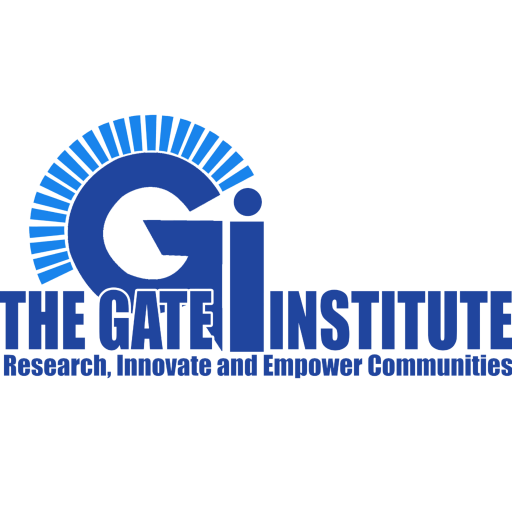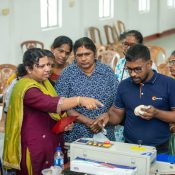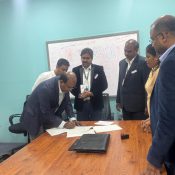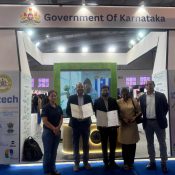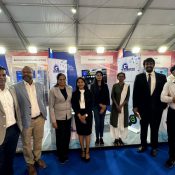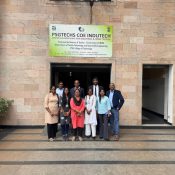
Critical and transformative research is essential for ensuring positive peace, says the CEO of The Gate Foundation
Speaking as Guest of Honour at the ‘1st International Conference on Harmony and Reconciliation’ organised by the Harmony Centre, University of Vavuniya, Sri Lanka on January 20, 2023, the CEO of The Gate Foundation, Dr Senthan Selvarajah, said that critical research and transformative could make an essential contribution to establishing positive peace in Sri Lanka.
He added that by bringing together research, education, and professional practice, the University of Vavuniya can contribute significantly to the development of the Vanni region.
His full speech is available below:
Vice Chancellor of the University of Vavuniya Professor. T. Mangaleswaarn, Director of Harmony Centre, the University of Vavuniya, Ms S.Mathivathany, distinguished speakers and guests, ladies and gentlemen.
Good morning to you all!
It is a great honour for me to be present at this critical event today and to have the opportunity to share a few words with you. I am delighted to attend this conference on behalf of The Gate Institute, which is one of the partners of this conference. The Gate Institute is a recently established, cross-disciplinary institute that aims to provide research and scientific-based innovative solutions to address socio-cultural, economic and human security issues and challenges primarily in war-affected communities in Sri Lanka.
We have initiated several steps, including collaborating with universities, research institutes, policy organisations, local councils and NGOs/ CSOs locally, nationally and internationally and harnessing the expertise and resources of the diaspora to provide solutions through research and innovation to the problems faced by the people affected by the war.
As far as I know, this is the first international peace conference organised in Sri Lanka during and after the war. Seminars and some peace-related events have been organised on various occasions. But this is the first time that an international conference is being held. Thus, this conference organised by the University of Vavuniya is essential and relevant at this critical juncture. The Vice Chancellor of the University of Vavuniya, Prof. T. Mangal Eswaran and the Director of Harmony Centre, University of Vavuniya, Ms S.Mathivathany deserve much appreciation for organising such an important conference.
According to research, the main reason for many internal conflicts around the world is the motivation of people to meaningfully participate in the decisions governing their lives and preserving and promoting their identity, heritage and traditions. Conflict occurs when this motivation is denied. Sri Lanka’s internal conflict is no exception to this nexus between conflict and governance.
This accentuates the need for conflict resolution strategies that adhere, to some extent, to research – and knowledge-based approaches. Research indicates that human rights have become the core of peace-making and peacebuilding strategies. Studies of the relationship between human rights and conflict resolution show how, over time, the relationship between these two concepts has transformed from tension to cooperation.
This tension existed because of the nature and methods of addressing the underlying issues. For example, contradictory or even mutually exclusive approaches were used by peace practitioners differently for problems of human rights and peace. However, it has been realised that safeguarding and fostering human rights and peace requires an approach that incorporates the perspectives of both human rights advocates and conflict resolution practitioners. Acknowledging and acting on the problem can contribute to creating peace, which is indispensable for human rights promotion and protection. This is why positive peace refers to the absence of indirect and structural violence and is the concept most peace and conflict researchers adopt. This is true for Sri Lanka.
Therefore, Critical research and transformative research can play a vital role in devising appropriate strategies and practices necessary to create positive peace in Sri Lanka. Beyond academic activities, academic institutes should conduct research, training, and knowledge management activities in collaboration with Non-Governmental Organisations and community organisations. This conference organised by Vavuniya University is an excellent example of such an approach.
When universities bring research, education and professional practice together and create an effect or a fusion, it will benefit students and society. The three constituents of ‘effect’ or ‘fusion’ can assist and reinforce each other rather than work in isolation to create something more significant than the sum of the qualitative outcome of each component. The University of Vavuniya, located in the war-devastated Vanni region, is responsible for creating such a fusion. I see this conference as an outcome of such a responsibility.
I wish this conference a success, and I’m sure it will be successful.
Thank you again for inviting me to this event and allowing me to speak with you.
